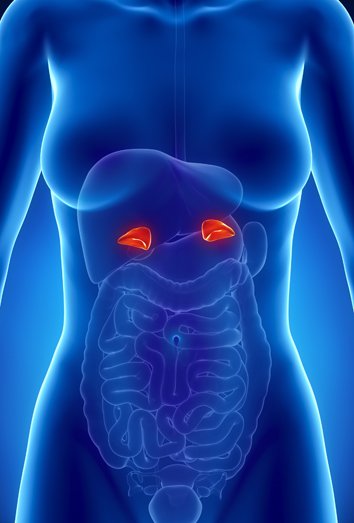When we are faced with a stressful situation, our body responds by releasing hormones. One of these hormones is cortisol, popularly known as the stress hormone.

This steroid hormone is produced in the adrenal gland and is released when we find ourselves in a situation that our body assimilates as threatening or challenging, it is what we know as the first phase of stress or alarm phase.
Faced with this alarm situation, our brain sends signals to the adrenal glands to release cortisol. Once this process is activated, the body begins to release glucose, causing glucose levels to increase in the blood and can send large amounts of energy to the muscles.
Next, a paralysis of the anabolic functions occurs until the specific stress situation is resolved and our entire body returns to normal.
What happens when the stressful situation is prolonged?
If the situation that has caused us stress does not stop and continues to be a threat, a large amount of cortisol will be generated in our body, which is very harmful to our health. Among the potential complications it can lead to are diabetes, an increase in blood pressure, suppression of the immune system, and even decreased bone formation.
With a blood test specialized in the measurement of this hormone, we can know the amount of cortisol that we have in our body.
A healthy and balanced diet is essential for strong health. There are certain foods that help reduce cortisol levels in our body, such as those rich in Vitamin B5, such as almonds, salmon or milk; those rich in Tryptophan, among which are soybeans, meat or eggs, among others; and those rich in Phenyl amine such as chicken, broccoli or artichoke.
On the contrary, caffeine, tobacco, alcohol and potassium must be eliminated from our routine if we want to control cortisol levels.


